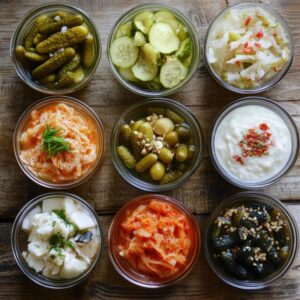
Caffeine is one of the most common sources of energy. Many people consume caffeine to kick start their days or provide a boost prior to a workout. While there are several products that can provide someone with these benefits, there are two natural sources that come with many health benefits. It is important to note that caffeine intake should not exceed amounts of 300mg, or a person may experience adverse effects like anxiety, insomnia, or an increase in heart rate.
This brings me to the first and most popular source of caffeine: coffee. Coffee is nature’s glory and is something I look forward to when I start my day. A cup of plain, black coffee generally provides arounds 70mg of caffeine and a handful of health benefits. When you consume black coffee, you may notice an improvement in your mood or even an increase in energy and alertness. Aside from providing energy, coffee also helps your body process and digest glucose (sugar) more efficiently by increasing our bodies insulin response. It may also reduce your risk of heart disease.
An additional source of caffeine I would like to mention is tea. You can find it in black tea, green tea, oolong tea and purple tea. It is important to note that herbal teas do not contain any caffeine. Like coffee, the caffeine in tea also provides many health benefits. These include a boost in brain function, mood, energy levels and may even help to protect against Alzheimer’s and Parkinson’s disease. Caffeine’s likelihood to protect against Alzheimer’s and Parkinson’s stems from its well-rounded antioxidant capacity and increasing our bodies insulin sensitivity. The way caffeine increases our cognitive function is key for its disease fighting capabilities.
When consuming coffee or tea, it is important to note the sugar content in your drink of choice. When I mention that consuming caffeine from tea and coffee includes health benefits, I am referring to both items in the raw, meaning nothing else is added to them. Many people will order coffee at a shop and add syrups and creamer. While this is okay to do occasionally, it isn’t something you should be consuming every day because at that rate, the costs outweigh the benefits. The same goes for any tea. Many people like to add sweetener to their tea, like honey. Honey is a natural sweetener but if consumed several times in a day, the sugar count does add up. This isn’t saying you should never enjoy a spruced-up coffee or tea, but it’s something I think everyone should be mindful of.
Overall, both coffee and tea provide great benefits when consumed and neither one is necessarily better than the other. Just remember to keep in mind the amount you are consuming and any additives you are incorporating.
This brings me to the first and most popular source of caffeine: coffee. Coffee is nature’s glory and is something I look forward to when I start my day. A cup of plain, black coffee generally provides arounds 70mg of caffeine and a handful of health benefits. When you consume black coffee, you may notice an improvement in your mood or even an increase in energy and alertness. Aside from providing energy, coffee also helps your body process and digest glucose (sugar) more efficiently by increasing our bodies insulin response. It may also reduce your risk of heart disease.
An additional source of caffeine I would like to mention is tea. You can find it in black tea, green tea, oolong tea and purple tea. It is important to note that herbal teas do not contain any caffeine. Like coffee, the caffeine in tea also provides many health benefits. These include a boost in brain function, mood, energy levels and may even help to protect against Alzheimer’s and Parkinson’s disease. Caffeine’s likelihood to protect against Alzheimer’s and Parkinson’s stems from its well-rounded antioxidant capacity and increasing our bodies insulin sensitivity. The way caffeine increases our cognitive function is key for its disease fighting capabilities.
When consuming coffee or tea, it is important to note the sugar content in your drink of choice. When I mention that consuming caffeine from tea and coffee includes health benefits, I am referring to both items in the raw, meaning nothing else is added to them. Many people will order coffee at a shop and add syrups and creamer. While this is okay to do occasionally, it isn’t something you should be consuming every day because at that rate, the costs outweigh the benefits. The same goes for any tea. Many people like to add sweetener to their tea, like honey. Honey is a natural sweetener but if consumed several times in a day, the sugar count does add up. This isn’t saying you should never enjoy a spruced-up coffee or tea, but it’s something I think everyone should be mindful of.
Overall, both coffee and tea provide great benefits when consumed and neither one is necessarily better than the other. Just remember to keep in mind the amount you are consuming and any additives you are incorporating.




